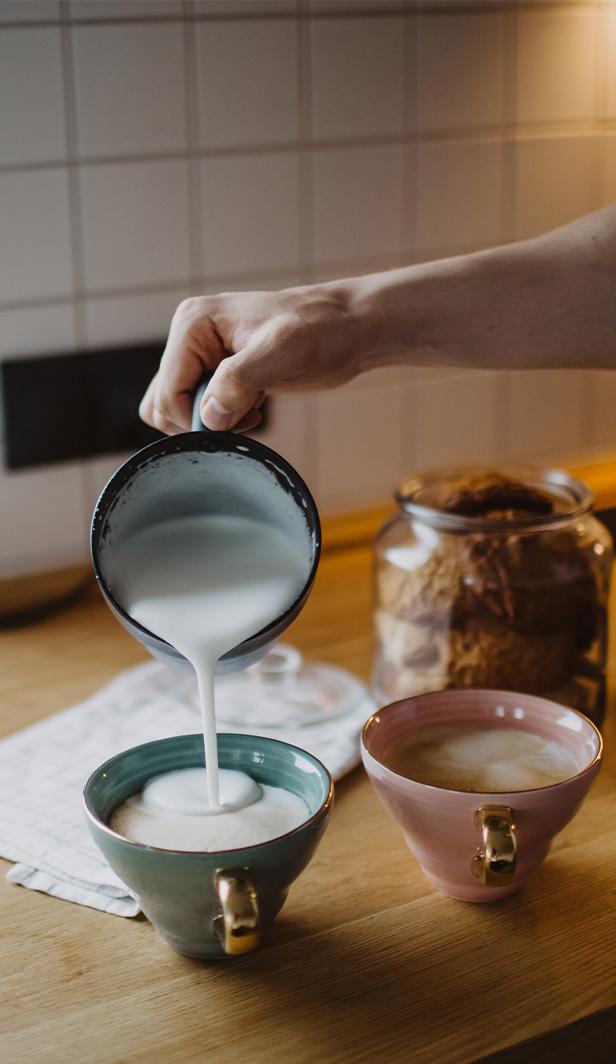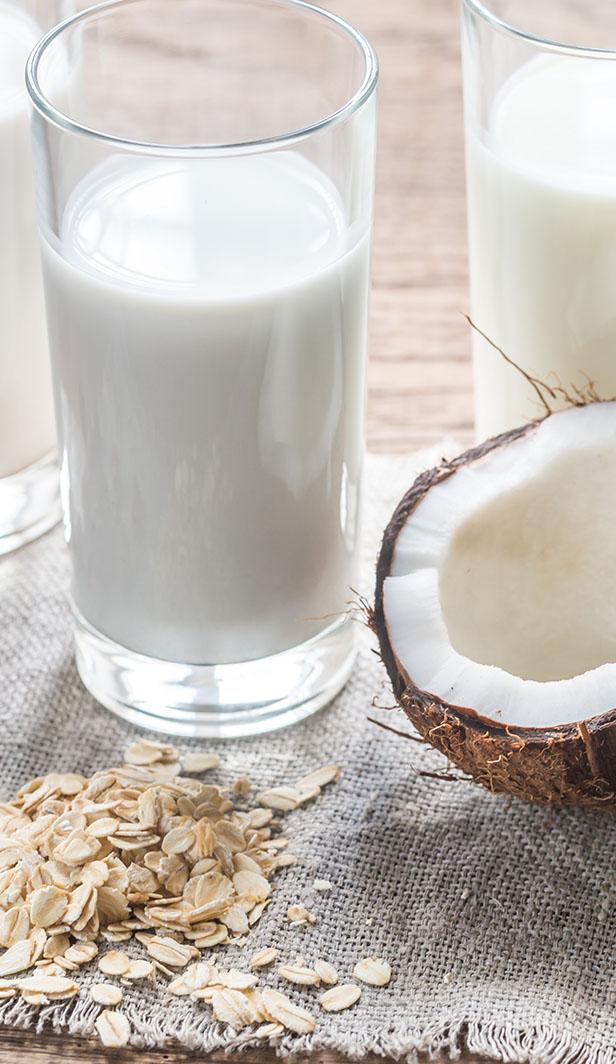Coffee cup, mug and glass size guide
Cappuccino cup - 180ml
Flat white cup - 160ml
Standard mug - 350ml
Macchiato cup - 60ml
Bowl - 160ml
Latte glasses - 220ml
Cortado glass - 135ml
Irish coffee glass - 250ml
Turkish coffee cup - 75ml

The standard coffee mug
Approx. 350ml in size
For most of us at home, we have a special mug that we drink our favourite NESCAFÉ coffee coffee from. Whether it’s personalised, giant, or one with sentimental value, we all have our favourite coffee cup in the cupboard.

The espresso cup
Approx. 60ml in size
An espresso cup, also known as a demitasse cup - the French word for half cup, is the smallest of the coffee cups. This cup tends to be narrower at the base, and wider at the rim. The espresso cup can't be too big, as this can cause the crema to spread out, become too thin, and fade quickly. A larger coffee cup also affects the temperature of the espresso and it can become too cold quickly, exposing it to too much air, and, as we know, there is more to an espresso than simply shotting it, it’s all about the experience. Macchiatos are also served in espresso cups.

The cappuccino cup
Approx. 180ml in size
The Italian cappuccino cup is smaller than the standard cappuccino coffee cup. Most cappuccino cups are also narrower at the base and wider at the rim. This is for the same reasons as the espresso cup, except with the cappuccino cup, the espresso shot remains more concentrated in a narrow base. This dome-shaped cup will also allow the perfect foam topping. Cappuccino cups should also have matching saucers. Americano coffee can also be served in a cappuccino cup.

The flat white cup
Approx. 160ml in size
Served correctly, the flat white cup is similar to the cappuccino cup, but smaller in size and shaped like a tulip, being narrower at the rim. The size of the flat white cup allows the coffee flavour to remain prominent, as well as have a silky smooth and creamy texture.

The Bol
Approx. 160ml in size
With French coffee, it’s common to drink a café au lait from a bowl-type coffee cup called a bol, which is usually made out of porcelain. When drinking café au lait from a bol, it should be held with both hands, as they tend to not have handles, and sipped like soup.

Latte glasses
Approx. 220ml in size
Lattes can also be served in a bowl like mug, but one that is typically larger than a cappuccino cup. This makes is easier to pour the steamed milk over the espresso, and maybe even create some latte art. However, typically and historically, the Italians have served their lattes in tall latte glasses. This is widely believed that it’s because it shows off the perfect layers of a latte. Latte glasses also help baristas achieve the right quantity of espresso, milk and foam.

The cortado glass
Approx. 135ml in size
The cortado is quite a new face in the world of coffee. Starting in the Blue Bottle Café in San Francisco, Gibraltar tumblers were used to make this drink. Being a little too small for their cupping coffee, the baristas started accidentally making cortados in these glasses. Founder, James Freeman, says the Gibraltar as a cortado glass “has had surprising international success, appearing on menus in the United States, Europe, and Japan".

The Irish coffee glass
Approx. 250ml in size
The Irish coffee glass, unlike a standard coffee cup, is made from glass and has a short stem to elevate the drink. Some versions feature a handle, while most are compared to stout wine glasses. As the Irish coffee glass is clear, it allows its drinker to see its beautiful layering of coffee and cream.

The Turkish coffee cup
Approx. 75ml in size
To make Turkish coffee, an ibrik or cezve, the name of the pot with a long handle, is used for brewing. Then, it’s poured into a separate coffee cup. Often referred to as a demitasse cup, the Turkish coffee cup is in fact different to ones used for espresso.
Turkish coffee has a much higher temperature than espresso because of how it’s made. Therefore, the coffee cup must withstand the temperature and hold a steady high temperature as the coffee grounds settle. This coffee drink is also designed to be enjoyed for a long time, not shot like espresso. Turkish coffee cups are often made of porcelain and have the right level of thickness to maintain its temperature.
Make your coffee moment that much more memorable with the right cup for you and your brew.

Today’s community favourites




